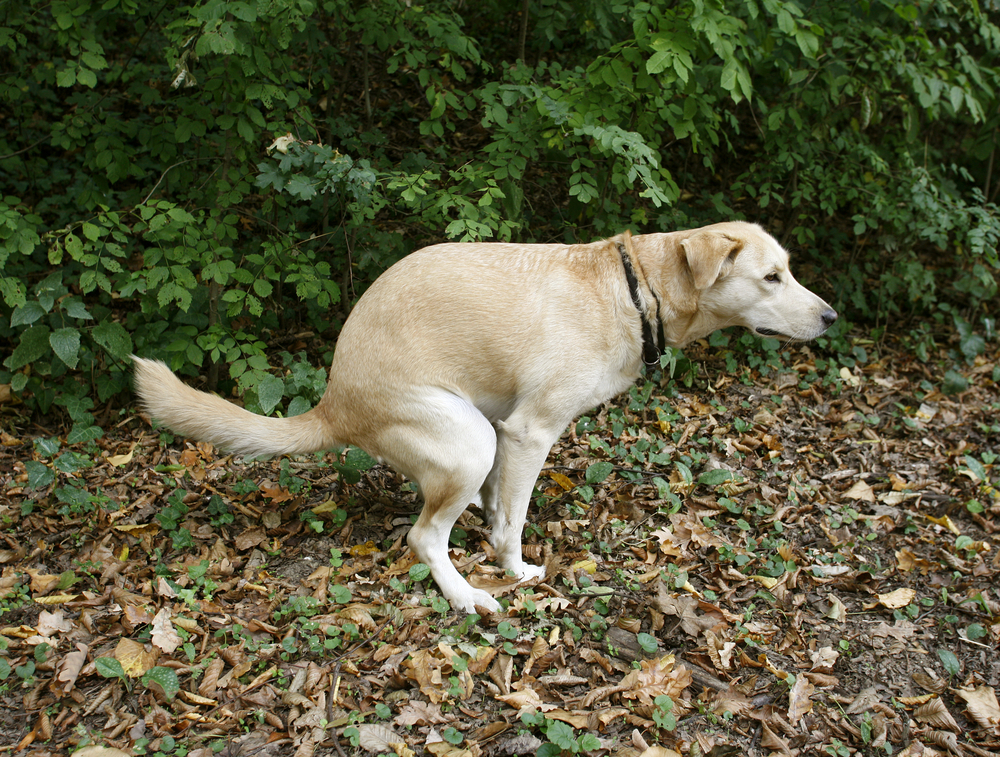
2014 Begins with Oriented Animal Pooping and Pufferfish Highs (Op-Ed)

Marc Bekoff, emeritus professor at the University of Colorado, Boulder, is one of the world's pioneering cognitive ethologists, a Guggenheim Fellow, and co-founder with Jane Goodall of Ethologists for the Ethical Treatment of Animals. Bekoff's latest book is Why Dogs Hump and Bees Get Depressed (New World Library, 2013). This essay is adapted from one that appeared in Bekoff's column Animal Emotions in Psychology Today. He contributed this article to LiveScience's Expert Voices: Op-Ed & Insights.
It's 2014, and as usual, my email inbox is loaded with interesting new stories about various aspects of animal behavior. Two studies recently caught my eye, and show how much we still have to learn about non-human animals (animals).
It's particularly interesting that the two, completely different studies expand people's knowledge about animals' incredibly diverse lives — a mandate that humanity keeps the door open about the fascinating lives of the other beings with whom we share Earth.
The poop on orienting to poop
The first study I read suggests dogs might poop in line with the Earth's magnetic field. Who would have thought that dogs would be sensitive to the Earth's magnetic field? I have to admit that at first I was a bit skeptical about this study, conducted over two years by German and Czech researchers. And, although I've studied dogs and their wild relatives for decades — including patterns of pooping and peeing — this idea never crossed my mind. The way canines positioned themselves when eliminating seemed very random, although often they would orient themselves so that they could be seen by others.
However, in reading through the research paper published in the professional journal Frontiers in Zoology — the paper is "Dogs are sensitive to small variations of the Earth's magnetic field" — I came to see that the data support the conclusions the researchers offer.
Specifically, the analysis of more than 70 dogs from 37 breeds showed that dogs preferred to defecate with their bodies aligned along the north-south axis (under calm magnetic field conditions). When the local magnetic field was thrown out of whack, the dogs were less picky about where they relieved themselves.
Sign up for the Live Science daily newsletter now
Get the world’s most fascinating discoveries delivered straight to your inbox.
The researchers fully recognize that it remains unknown why dogs orient themselves the way they do, and it's not clear whether the behavior is based on conscious decisions. However, the data also show that the dogs not only prefer the North-South direction when pooping and peeing, but also that they avoid an East-West direction.
There are a lot of questions that need to be addressed. I wonder, for example, if dogs are unable to assess the Earth's magnetic field, how might their behavior change? There are non-invasive ways to conduct such a study. Nonetheless, this is the first demonstration of magnetic field sensitivity in dogs.
If the study is any indication, 2014 is going to be an eye-opener about the fascinating animals with whom we share our planet. Which brings me to the second behavior piece to dominate the news of late.
Dolphins get high with a little help from their friends
Following up on the surprising discovery about humanity's "best friends," I also learned that spy cameras used to film a new BBC documentary called Dolphins: Spy in the Pod show that dolphins get high on pufferfish.
To wit, Steve Williams of care2.com writes, "When threatened, pufferfish can excrete a powerful neurotoxin: tetrodotoxin. The substance, which can be lethal in high doses but in smaller quantities is relatively benign, effectively blocks neurons in the brain from firing and therefore produces a narcotic effect. It is currently being investigated as a possible way to treat pain in cancer patients. The teenage dolphins appeared to be 'chewing puff' ... for no other reason than experiencing an altered state of consciousness." [Pot and Pets: Should Dogs Get High? ]

Scientists already know that dolphins are exceptionally smart and emotional beings, and many people, including many researchers, view dolphins as persons and have vehemently argued that dolphins deserve much more protection than they now have. In 2013 India designated dolphins as "non-human persons" and banned their use for public entertainment anywhere in the country.
Once again, claims about human exceptionalism are shown to be misleading (see "We Are Animals and Therein Lies Hope for a Better Future"). The final paragraph of Williams's articlemakes for very interesting reading: "It is hoped that in the next few years evidence like the 'dolphins doing drugs' meme will be so startlingly incontrovertible that policy makers will no longer be able to ignore the issue of cetacean rights. Though, it has to be said, on the day those deserved rights are afforded, it would be nice if the dolphins aren't completely stoned."
Stay tuned — I imagine we can expect more insights this year such as these, glimpses into the fascinating lives of the other animals with whom we share our magnificent planet.
Bekoff's most recent Op-Ed was "Ignoring Nature No More: The State of the Animals 2013" This article was adapted from "Dolphins Get High With a Little Help From Their Friends" and "Dogs Line Up With the Earth's Magnetic Field to Poop and Pee" in Psychology Today. The views expressed are those of the author and do not necessarily reflect the views of the publisher. This version of the article was originally published on LiveScience.










